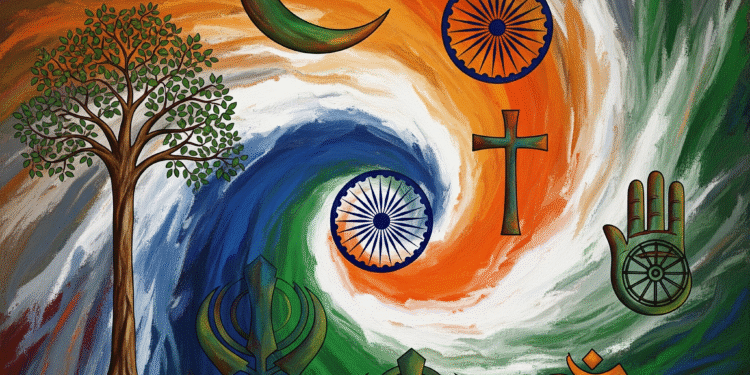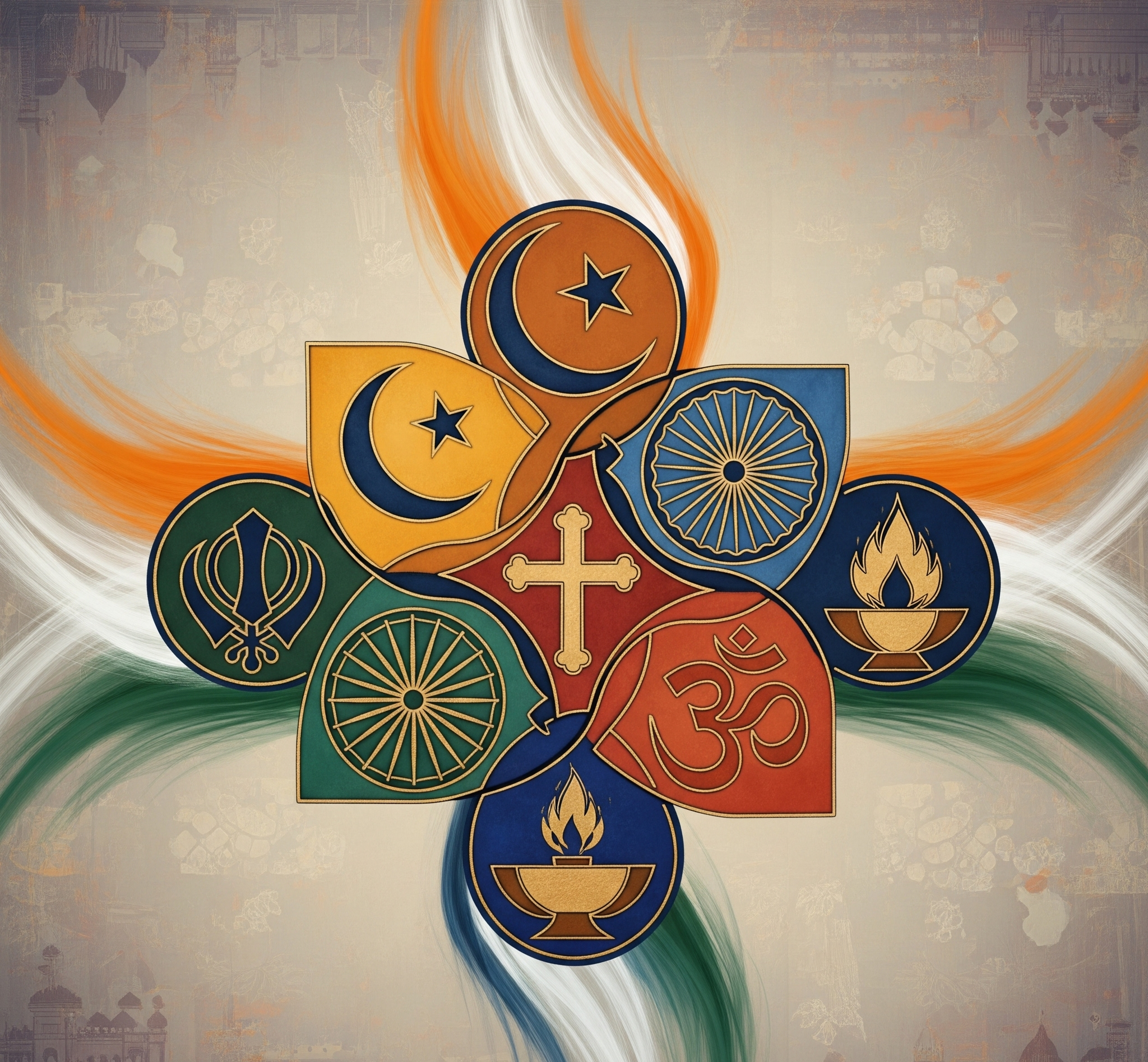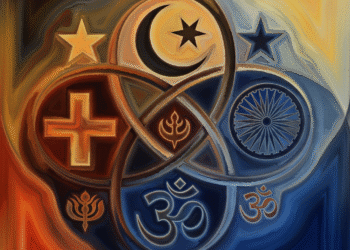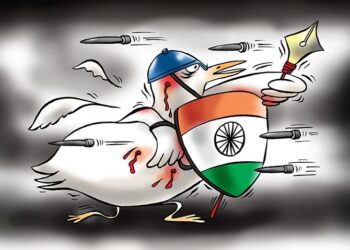Since Hindus form an overwhelming majority in India, the responsibility of keeping India secular rests on the shoulders of the Hindus because, as I pointed out earlier, India cannot and could not have stayed secular, had the Hindu majority not been by and large secular with an inclusive outlook towards the people belonging to other communities. So the answer to the oft-repeated question as to why only Hindus have to be secular is pretty simple: because for India to be secular, the majority of the majority community has to be secular, which, at least so far, has continued to be the case despite persistent efforts to change it for no reason other than, well, “vote bank politics”, which people on both sides of the Indian secularism debate (and of the political divide over the issue) rightly accuse each other of.
In the earlier part of this series, I directed the attention of the readers to the utter futility of being a “Hindu nation” and to there being no problem that is associated with or stems from our being a secular nation. But there is not only no reason for us to turn non-secular or a “Hindu nation”, but also there is a serious potential of both long-term and short-term harm to the socio-political fabric undergirding Indian polity.
What perhaps most people do not realize is that being secular is not just about not discriminating between classes of people based on their faith, but is also about not making distinctions on the basis of anything that is both rational (as opposed to ideological, religious or cultural) as well as purposive in the sense that a distinction cannot be made only for making a distinction but must be for an actual purpose and must be geared towards a real-world objective to be achieved. Secularism is, therefore, also about equality and fairness. The spirit of secularism is, to put it differently, about not making arbitrary classifications fueled by prejudices rather than facts and reason.
It follows that not being secular means not being fair and making arbitrary distinctions and classifications, which can only result in the erosion of the moral authority of the state. And after a certain threshold is breached, the government would be viewed as oppressive and evil, thereby justifying a civil overthrow of the government by constitutional means. If the government acts to seal off the possibility of constitutional challenged, or such challenges are not satisfactorily decided by the superior courts, the stability of the nation would stand threatened by a potential civil war.
So those who think that secularism is a dispensable luxury we have been indulging in are hugely mistaken, for if we push the idea of a non-secular India to its logical conclusion, it results in an oppressive and essentially non-egalitarian, majoritarian state that exists and works for only one class of people at the cost of other classes with the other classes relegated to a second-class status. Do we want to turn into such a regressive nation? I don’t see which political leader, in their right mind, would be able to even talk about building a nation where all classes of people save one have a secondary existence.
People, both politicians and others, do talk about bringing about a Hindu Rashtra, but they most likely do not think about what would it be like to have such a nation. Would we have Manusmriti as the governing principle? Would some religious texts from the long-bygone era be the basis of our laws? Would we have a bunch of priests tell us the best way to interpret religious principles in the right cultural context of the Hindus? Would these priests then have the final authority to declare whether or not a law is consistent with the supreme religious law as gleaned by them from the holy scriptures? What does this picture look like? Doesn’t it sound like a Hindu Iran with a Hindu cleric pontificating on a loudspeaker from the top of a sprawling mansion, dictating terms of governance to the elected government of the day? I don’t think Indian citizens or even Indian politicians, including the Hindutva hardliners, would want Indian polity to take that shape because it’s the worst deal for all parties concerned. But that’s the only deal we’ll get if we allow too much political space to religious bigotry.
The Ram Rajya people keep talking about was about the king doing everything in his power to ensure the welfare of the citizens, which is the same thing as the welfare state; and keeping the will of the people over and above everything, including his personal interests and also, arguably, his own sense of justice (banishing Sita was not just to Lord Rama’s mind), which is direct democracy. And it did not matter what class the citizen came from for his/her opinion to matter. That’s equality among all classes in practice, which is conceptually the same as secularism.
Indian Hindus have always been culturally democratic and secular even though their practice of equality does leave a lot to be desired. So a truly Hindu Rashtra would still not be the one where people impose their will and their faith on others. Being a Hindu means being liberal, secular and democratic. That’s how deep the roots of Indian democracy and secularism go. They don’t flow from the Indian Constitution but are merely recognized and enforced by it. And it’s hard to see why we need to change any of it.
Concluded
Originally published as part of my monthly column Street Lawyer in the November 2022 Issue of Lawyers Update (Vol XXVIII, Part 11).






